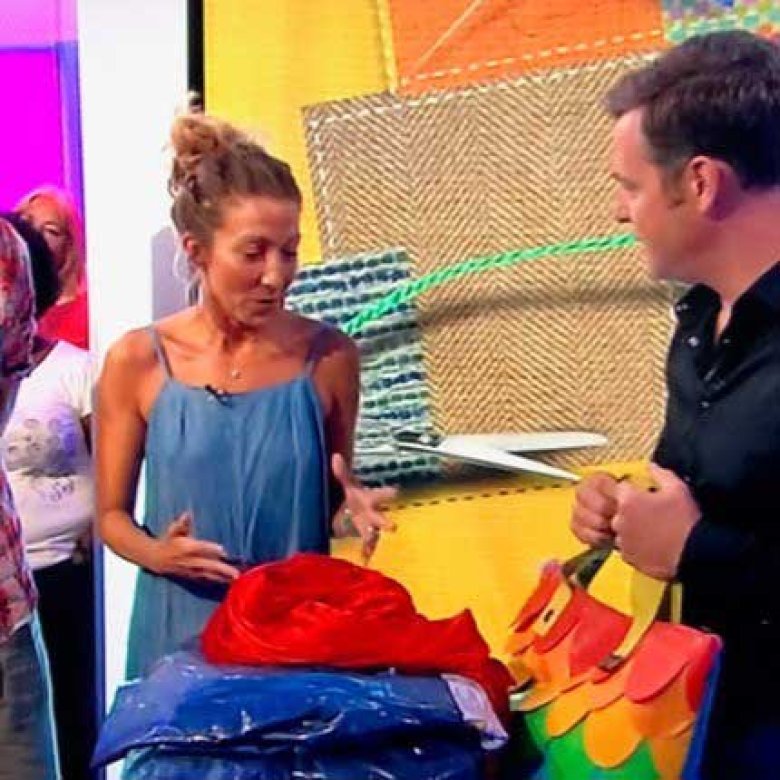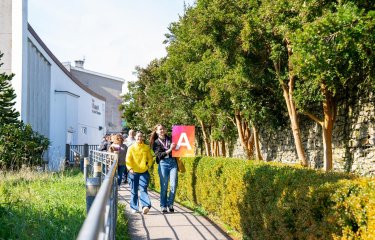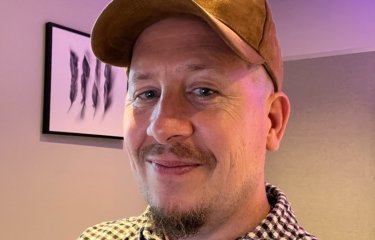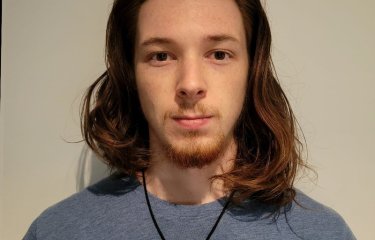“A light at the end of the tunnel”: why I chose to study Falmouth’s online Sustainable Fashion master’s
28 September 2023

Georgia Wyatt-Lovell is a creative practitioner, sustainability consultant and founder of two sustainable product brands. After running her own businesses took a toll on her mental and physical health, Georgia’s definition of success shifted: and her focus shifted to the ethical issues of commercial environments. She has recently joined Falmouth’s online postgraduate community as a student on Sustainable Fashion MA (Online), which is restoring her sense of hope. We chatted to her about why she chose to join this community of changemakers.
What made you decide to take on the online master’s in Sustainable Fashion at Falmouth?
I’ve always known I wanted to do a master’s and had a place on a postgraduate painting course back in 2011, but for various personal reasons I couldn’t take it up. I also feel very strongly about sustainability – not just in the context of fashion – to the point where I believe it should be part of the national curriculum in schools.
So, when I discovered this course, it felt like a light at the end of the tunnel. Having run two businesses over the past decade, I came to realise that if you want to run something ethically, it’s difficult to do so in a commercial environment. I had started to feel hopeless, and it was having a negative impact on my mental health.
I only joined the course in May this year, but I’m already feeling like we can dismantle established systems and change the broken narratives. I am starting to believe that anything is possible – like abolishing fashion weeks, for example, which exemplify fashion's unsustainable system of trends and overproduction.
What is the most valuable thing you have taken from the course so far?
Meeting people on the course from diverse backgrounds is excellent. It is really humbling to see how committed people are, as well as constantly challenging my thoughts through discussions and looking at things from different points of view. Being part of this community is really restoring my sense of hope, which I had gradually lost over the years.
How do you find studying online?
From the moment you join the course, you've got immediate access to a fantastically curated list of resources. Every single one of the resources is interesting and useful, and I am so excited by it – it really blew my mind in the first couple of weeks, and I wanted to read everything straight away! It feels like a real luxury to be able to spend time on it; something I haven’t had chance to do in a long time.
Being part of this community is really restoring my sense of hope, which I had gradually lost over the years.
What are your ambitions for your next year on the course, and then beyond after you graduate?
I'm currently going through a bit of an existential crisis; me and my partner still have two businesses, but I'm not 100% health-wise and so don’t like the stress that brings. So, we are having to make some important decisions now about what we do next, and one of those is following this pathway down a research route; of continuing our education and allowing our family to live a healthier lifestyle alongside like-minded people. It is my personal belief that if you are doing something you believe in, hopefully the byproduct of that is that you get to make a living from it eventually.
That's why I want to find a niche within sustainability, where it is a little quieter and more considered. I’m not saying I don't agree with speaking up for what you believe in, or protesting, but it’s not really for me. Instead, I want to go down the route of ‘finding stuff out’; researching and engineering sustainable fabrics, for example. The course has made me feel as though it is a possibility – quieter and marginalised voices are heard on this course and are listened to respectfully.
I have also just started volunteering at a school near me, teaching the kids about sustainable fashion for an hour a week. The first thing I said to them was the fact that they are even in the room and have chosen to learn about sustainability means they’re streets ahead of a lot of adults!
What advice would you give to someone considering joining the course?
Just do it - don't put it off. I was all over the place when I applied and was worried I might not get accepted. It hasn’t been easy; I had an ADHD diagnosis early in the year, as well as other challenges, but it's been the best decision I have ever made. It has led to a complete shift in my mental health; had I not started the course, I would not have recovered as quickly as I have, and that to me is a much more important outcome than anything that could be quantified.




